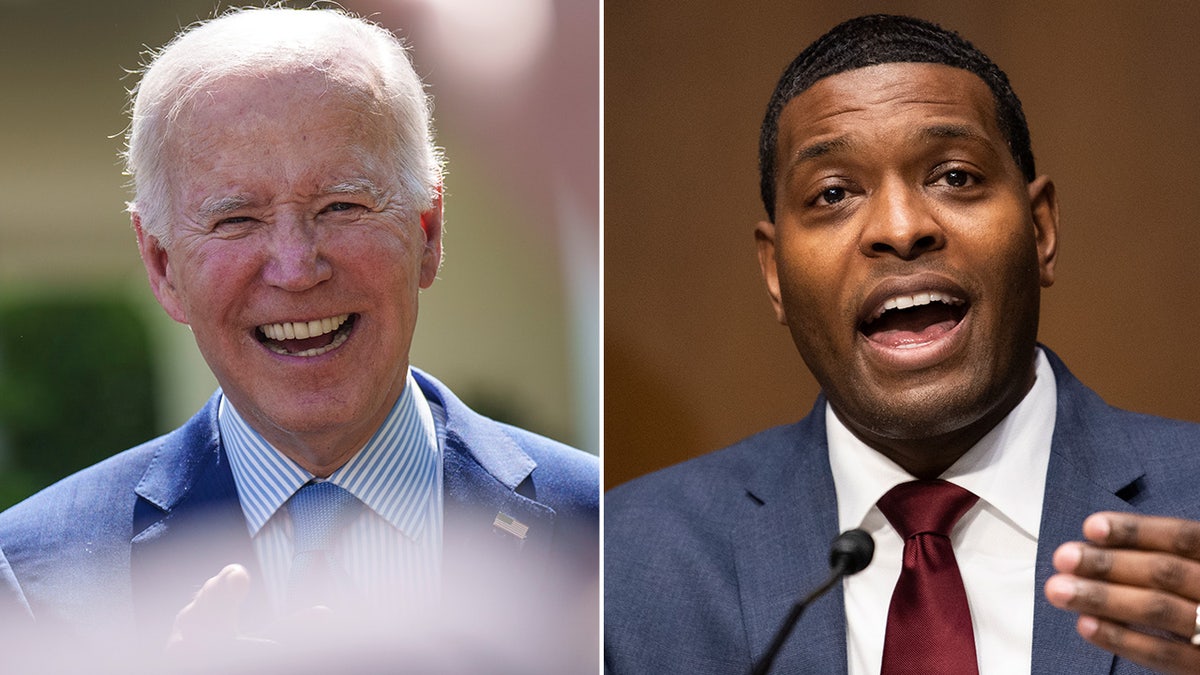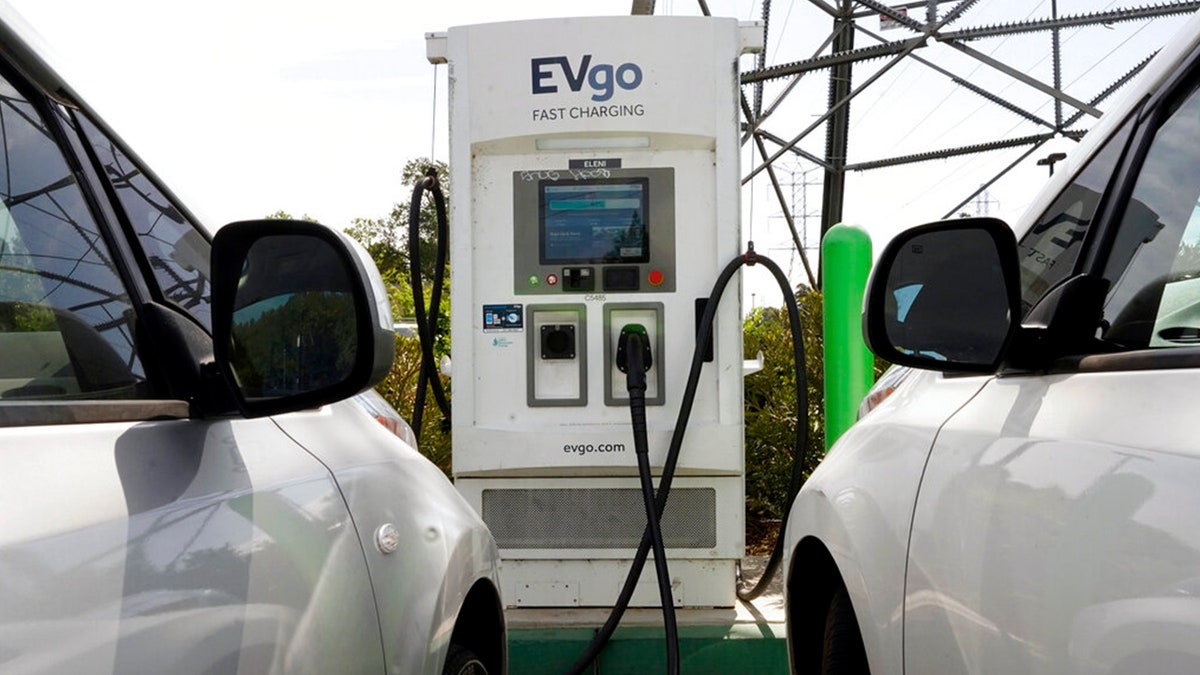Kennedy Stops By To Discuss Electric Vehicles And Biden’s Ritzy NYC Fundraiser
Host of the "Kennedy Saves The World" podcast Kennedy joins Fox Across America to explain how elected officials have less power than bureaucrats.
FIRST ON FOX: A group of more than 30 House Republicans is introducing a resolution Friday that would overturn President Biden's actions targeting gas-powered vehicles as part of his climate push.
The nearly three dozen GOP lawmakers, led by Rep. Andrew Clyde, R-Ga., are introducing the bill under the Congressional Review Act, a law dating back nearly three decades that allows Congress to revoke federal regulations. The resolution would block the stringent, multipollutant emission standards governing gas cars finalized last month by the Environmental Protection Agency (EPA).
"Despite persistent pleas to keep his hands off our car keys, President Biden is doubling down on his radical EPA rule to institute a de facto EV mandate on our country," Clyde said in a statement to Fox News Digital. "Hardworking Americans already battling inflation simply cannot afford the President’s illegitimate power grab – nor should they be forced to bear this burden."
"American consumers always deserve the freedom to decide what car they purchase and drive," he continued. "Congress must prevent the Biden administration’s dangerous overreach from encumbering auto manufacturers, enriching Communist China, and crushing the American people."
FEWER AMERICANS WANT TO BUY AN EV — EVEN AS BIDEN PUSHES FOR STRONGEST-EVER CLIMATE CHANGE RULES

Rep. Andrew Clyde, R-Ga., attends a House Appropriations Committee hearing on March 24, 2023. (Tom Williams/CQ-Roll Call, Inc via Getty Images)
Clyde's resolution earned endorsements from various pro-energy and conservative groups, including the American Energy Alliance, Americans for Prosperity, Eagle Forum and Heritage Action for America. Additionally, it represents the first formal congressional action taken in response to Biden's finalized emissions standards.
Under EPA's regulations, automakers will be forced to rapidly curb the emissions of greenhouse gases, hydrocarbons, nitrogen oxides and particulate matter from new passenger cars, light trucks, and larger pickups and vans beginning with model year 2027 vehicles. Overall, the rules are by far the most stringent of their kind ever finalized at the federal level.
MAINE REJECTS SWEEPING ELECTRIC VEHICLE MANDATE IN BLOW TO GOVERNOR'S CLIMATE AGENDA
According to the EPA, the regulations will broadly help "tackle the climate crisis" by reducing the transportation sector's carbon dioxide emissions by a staggering 7.2 billion metric tons over the course of the program, which will be in effect through 2032. The rules will also force automakers to increase production and sales of electric vehicles, plug-in hybrids, traditional hybrids and fuel cell vehicles.
Under one so-called "low cost" model the EPA outlined in the rule, officials said automakers would be forced to ensure 56% of light-duty car sales are battery electric and another 13% are hybrid by 2032.

President Biden, left, and Environmental Protection Agency administrator Michael Regan. (Getty Images)
"Three years ago, I set an ambitious target: that half of all new cars and trucks sold in 2030 would be zero-emission," Biden said in a statement after the regulations were finalized on March 20.
"I brought together American automakers. I brought together American autoworkers," he added. "Together, we’ve made historic progress. Hundreds of new, expanded factories across the country. Hundreds of billions in private investment and thousands of good-paying, union jobs. And we’ll meet my goal for 2030 and race forward in the years ahead."
17 RETIRED MILITARY OFFICIALS RAISE ALARM ON BIDEN'S ELECTRIC VEHICLE PUSH
The EPA's regulations have been heavily criticized by some state officials, Republican and Democratic lawmakers, agriculture industry groups like the National Corn Growers Association and energy associations, such as the American Fuel & Petrochemical Manufacturers and the American Petroleum Institute.

Electric cars are parked at a charging station in Sacramento, California. (AP Photo/Rich Pedroncelli, File)
In 2023, 9.5% of new, light-duty vehicle sales were EVs, up from 7% in 2022 and 4.3% in 2021, according to data from the Alliance for Automotive Innovation, an industry group that represents major automakers. At the same time, EVs remain more expensive than traditional, gas-powered cars.
CLICK HERE TO GET THE FOX NEWS APP
The share of Americans who said they are considering an EV purchase has declined from 55% to 44% year-over-year, according to a Gallup poll conducted in March.
When asked about the GOP resolution, the EPA did not immediately respond to a request for comment.














































